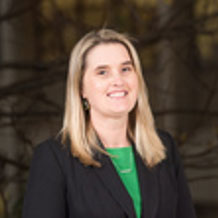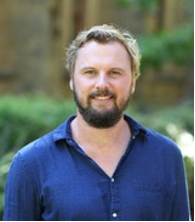The Sustainable Development Goals Cities Challenge
Connecting global cities, sharing expertise to achieve the SDGs
Connected Cities Lab
Faculty of Architecture, Building and Planning

Connected Cities Lab (CCL), in the Faculty of Architecture Building and Planning, is working with the Business Council for Sustainable Development Australia and Banksia Foundation to understand how cities and their urban partners understand and deliver on the Sustainable Development Goals (SDGs). The SDG Cities Challenge is a research and engagement project that seeks to contribute to the implementation of key urban SDGs targets and indicators, particularly SDG 11: Sustainable cities and communities.
More about the challenge from the Connected Cities Lab
Exchanging knowledge between cities
The SDG Cities Challenge was launched at the World Urban Forum Abu Dhabi in February 2020 and recruited 10 participants from across Australia and Asia Pacific region to align an existing project to key urban SDG targets. The participants involved are:
- Alor Gajah Municipal Council (Malaysia)
- City of Whitehorse (VIC Australia)
- City of Woollahra (NSW Australia)
- University of Melbourne Student Precinct (VIC Australia)
- City of Newcastle (NSW Australia)
- City of Dehradun (India)
- Port Vila (Vanuatu)
- City of Honiara (Solomon Islands)
- City of Melbourne (VIC, Australia)
- City of Warrnambool (VIC Australia).

Over the course of a year, starting in April 2020, the 10 participants are exploring solutions, and plans for implementation through a research and knowledge exchange process. By the end of the Challenge, each participant will commit to actions through formal voluntarily reporting on the SDGs, or as a stand-alone project and will present progress at the United Nations Association of Australia (Vic) Conference, and the Banksia Awards 2021.
Widening the impact of lessons learned across sectors
To determine their approach, cities have been guided through a multidisciplinary, co-designed approach, using expertise from across the University of Melbourne and from industry, university and city partners. Each step not only assists the participant organisation, but also informs a proposed multi-year research project, with outputs to include open access publications tailored towards city practitioners, industry and researchers, to widen the impact of lessons learned; commitments to delivering real action; and unique events to increase awareness and uptake of the SDGs.
Practical expertise, local solutions
In the SDG Cities Challenge, participants work on local sustainable development challenges relevant to one or more key SDG target or indicator, through a series of workbooks and webinars using a collaborative process that mobilises the knowledge and practical expertise of local government, academia and business. In this way each city is given an insight into their project-specific implementation plan, and ultimately could decide to commit to a full SDG ‘voluntary local review’ (VLR). The VLR is a process in which cities voluntarily review and follow-up implementation of the SDGs, share their experiences, challenges and lessons learnt, a process that can create unique opportunities for new partnerships. In order to work towards this outcome, participants in the SDG Cities Challenge seek to determine;
- The existing level of awareness of the SDGs within city leadership and urban governance structures,
- How cities are using SDG sub-targets to focus city-to-city knowledge exchange and collaboration, including with other stakeholders like academics and business,
- The programs, initiatives, frameworks that already exist to help cities implement the SDGs, and
- The transferability and scalability of SDG-related initiatives between different global urban contexts.
In parallel to the work being done by the 10 SDG Challenge cities, a global benchmarking survey will gather evidence of the way that they, and other cities from around the world, engage with the SDGs.
Aligning with the SDGs
The SDG Cities Challenge works with all 17 of the Sustainable Development Goals because it recognises the diversity of member cities in the Asia-Pacific region, and that a different combination of goals will need to be leveraged in response to the unique issues of each city.
However, the Challenge pays special attention to enact SDG 11; Sustainable Cities and Communities. This SDG acknowledges that for an ever-increasing proportion of society, the city has become the principle ecology (World Bank 2017) and so cities must play a commensurate role in creating a sustainable future. In particular, the SDG Cities Challenge works to enhance inclusive and sustainable urbanisation and the capacity for participatory, integrated and sustainable urban planning and management. It works to reduce the environmental impact of cities, particularly from air pollution and waste, and to provide universal access to safe, inclusive and accessible, green and public spaces. A key feature of the SDG Cities Challenge is cities’ adoption and implementation of integrated policies that enable inclusion, resource efficiency, climate change mitigation, adaptation, and system resilience.
Engagement events
To date, the Connected Cities Lab has been actively engaging the 10 cities, including with monthly webinars and workbooks. These have helped the city managers work through their challenges while simultaneously gaining an understanding of the SDGs and considering the feasibility of a VLR.
The Challenge also includes an annual public engagement event – the first of which convened in September 2020 in the Faculty of Architecture, Building and Planning’s Annual Symposium – this public element provides an opportunity for participating cities to share their experiences and urban challenges. In 2020, 773 delegates from 25 countries registered to participate in this engagement activity around the SDGs.
Researchers


